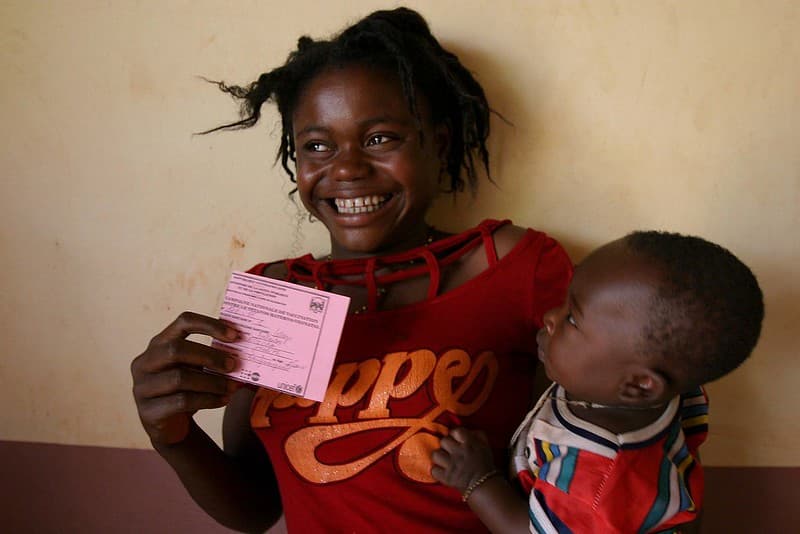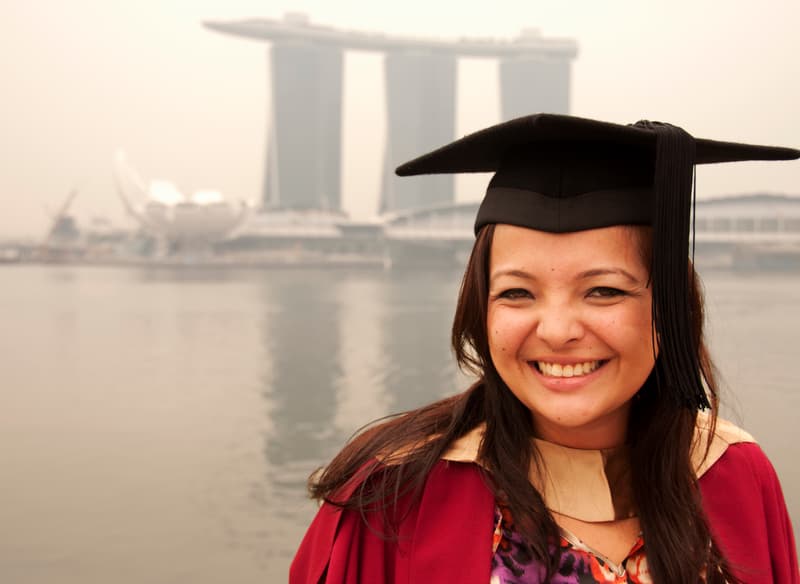National Gender Expert
Hanoi
- Organization: UNIDO - United Nations Industrial Development Organization
- Location: Hanoi
- Grade: Level not specified - Level not specified
-
Occupational Groups:
- Women's Empowerment and Gender Mainstreaming
- Closing Date: 2024-02-06
Requisition ID: 3299
Grade: SB5 - Local Professional (Mid-Level & Senior)
Country: Viet Nam
Duty Station: Hanoi
Category: National Consultant
Type of Job Posting: Internal and External
Employment Type: Non-staff WAE
Contract Duration: 16 working days over a period
Application deadline: 06-Feb-2024, 11:59 PM (CEST)
Vacancy Announcement
TEMPORARY APPOINTMENT OF PROJECT PERSONNEL
Only nationals or permanent residents of the country of the duty station are considered eligible.
Female candidates are encouraged to apply.
ORGANIZATIONAL CONTEXT
The United Nations Industrial Development Organization (UNIDO) is the specialized agency of the United Nations that promotes industrial development for poverty reduction, inclusive globalization and environmental sustainability. The mission of UNIDO, as described in the Lima Declaration adopted at the fifteenth session of the UNIDO General Conference in 2013 as well as the Abu Dhabi Declaration adopted at the eighteenth session of UNIDO General Conference in 2019, is to promote and accelerate inclusive and sustainable industrial development (ISID) in Member States. The relevance of ISID as an integrated approach to all three pillars of sustainable development is recognized by the 2030 Agenda for Sustainable Development and the related Sustainable Development Goals (SDGs), which will frame United Nations and country efforts towards sustainable development. UNIDO’s mandate is fully recognized in SDG-9, which calls to “Build resilient infrastructure, promote inclusive and sustainable industrialization and foster innovation”. The relevance of ISID, however, applies in greater or lesser extent to all SDGs. Accordingly, the Organization’s programmatic focus is structured in four strategic priorities: Creating shared prosperity; Advancing economic competitiveness; Safeguarding the environment; and Strengthening knowledge and institutions.
Each of these programmatic fields of activity contains a number of individual programmes, which are implemented in a holistic manner to achieve effective outcomes and impacts through UNIDO’s four enabling functions: (i) technical cooperation; (ii) analytical and research functions and policy advisory services; (iii) normative functions and standards and quality-related activities; and (iv) convening and partnerships for knowledge transfer, networking and industrial cooperation. Such core functions are carried out in Divisions/Offices in its Headquarters, Regional Offices and Hubs and Country Offices.
The Directorate of Technical Cooperation and Sustainable Industrial Development (TCS), headed by a Managing Director, oversees the Organization's development of capacities for industrial development as well as industrial policy advice, statistics and research activities and the Organization's normative contribution to Member States and global development community in achieving the SDGs. The Directorate also ensures the application of strategies and interventions for sustainable industrial development related to Environment, Energy, SMEs, Competitiveness and Job creation, as well as Digitalization and Artificial Intelligence. Through coordination in-house and with Member States and industry stakeholders, it ensures that the services provided in these areas contribute toward effective and appropriate technical, business and policy solutions and are focused on results and on realizing any potential for scaling up and positioning UNIDO as a leading platform for industrial development in developing countries and global fora.
The Directorate houses the technical Divisions of Capacity Development and Industrial Policy Advice (TCS/CAP); Circular Economy and Environmental Protection (TCS/CEP); Decarbonization and Sustainable Energy (TCS/DSE); SMEs, Competitiveness and Job Creation (TCS/SME); and Digital Transformation and AI Strategies (TCS/DAS). The Directorate also ensures close coordination and collaboration among the Divisions as well as with relevant entities in the Directorate of Global Partnerships and External Relations (GLO) and the Directorate of SDG Innovation and Economic Transformation (IET).
This position is located under the Competitiveness, Quality and Compliance Unit (TCS/SME/CQC) which builds national and regional production and quality infrastructure systems, with an emphasis on providing internationally recognized services, facilitating SME participation in regional and global value chains; strengthening institutional quality infrastructure capacities (i.e. standardization, metrology, and accreditation); building conformity assessment capacities (testing, inspection, certification, calibration, etc.); and supporting trade facilitation and quality awareness with the public sector, economic operators and consumers, placing a special emphasis on capacitating SMEs.
PROJECT CONTEXT
The Global Quality and Standards Programme (GQSP) is a strategic partnership between Switzerland and UNIDO to promote trade and competitiveness through strengthening the quality and standards compliance capacity to facilitate markets for SMEs.
The GQSP Viet Nam Phase 1 focused on “Increasing quality and standards compliance capacity of Mango value chain in Mekong River Delta” and achieved significant outcomes. The Phase 2 “Increasing quality and standards compliance capacity of tropical fruit value chains” expands the learnings to a wider tropical fruit industry following logical progression. The objective of the Phase 2 is “enhanced competitiveness and sustainability of Vietnamese tropical fruit exports through innovation, diversification, quality improvement, and standards compliance that meet modern market requirements.” The project will concentrate on four key industry sectors including mango, pomelo, durian and passionfruit. The list is not exclusive of other crops as if opportunities arise within the project and resources permitted then other crops can be included.
To this end the GQSP Viet Nam pursues three interrelated outcomes:
Outcome 1: Technical competence and sustainability of the Quality Infrastructure System and conformity assessment services related to tropical fruit export industry enhanced.
Outcome 2: Enhanced ability of the tropical fruit export value chain to meet the markets requirement and compete in target markets (national and export) through compliance with technical regulations and other quality requirements, adaptation to change, innovation and new technology.
Outcome 3: Improved culture for quality through conducive policy, market innovation and organizational structure enabling effective export development.
This will enable the Vietnamese tropical fruit industries to have the ability to meet the export market requirements and capitalise on the opportunities that exist, which in turn will improve the economic viability of the industry.
Under the supervision of the Project Manager (PM) in Vienna and in closed cooperation with the project national partners (VIAEP, NAFIQPM, STAMEQ, PPD, CIS, etc. ), provinces and other partners as well as in close collaboration with the national project coordinator and other international/ national project experts, the National Expert on Gender will undertake a gender analysis in order to effectively mainstream gender into the project activities. Specifically, the Gender Expert will assume the following tasks in the table below.
MAIN DUTIES
- Conduct desk review of agricultural value chain gender analysis report of the country if available;
- Review project document and relevant UNIDO documents on the requirements for gender mainstreaming, including UNIDO’s Policy on Gender Equality and the Empowerment of Women (2019);
-
Review and finalize the survey questionnaire which will be implemented by VIAEP to integrate gender questions and confirm data collection methodology;
-
In collaboration with project team and VIAEP, define locations and sampling systems;
-
Conduct a detailed gender analysis through survey or interviews as guided by UNIDO’s Guide to Gender Mainstreaming, particularly emphasizing gender issues in the project areas and the selected value chains and NQI sector (e.g. gender division of labour, access to an control of resources and technologies, women’s and men’s needs and preferences, and opportunities for and constraints on women’s participation etc.);
-
Assess and identify potential gender-differentiated impacts of the project. Analyse data and identify gender issues within beneficiaries in the selected fruit value chains and within National Quality Infrastructure Institutions;
-
Collect sex-disaggregated baseline data that could be used to monitor potential gender impacts;
-
Identify government agencies, UN agencies, NGOs, community- based organizations, and women’s associations or groups that can be strategic partners for the gender related actions proposed for this project;
-
Based on gender analysis, develop a plan of action that identifies opportunities and entry points for mainstreaming gender into the project. The plan of action for gender mainstreaming should mirror the project’s log frame and include the development of gender specific project components, gender responsive targets and indicators, timelines, assigned;
-
Integrate relevant gender components from the plan of action for gender mainstreaming in the workplan of the project activities;
-
Draft a final report on all activities undertaken, findings from analysis, recommended action plan.
MINIMUM ORGANIZATIONAL REQUIREMENTS
Education: The Gender Expert should have an advanced degree in Social or Natural Sciences or other relevant discipline, preferably with a specialization in gender and project cycle management.
Technical and Functional Experience:
The Gender Expert should have:
- A minimum of 5 years practical experience in the field of gender equality and gender mainstreaming;
- Formal training in gender analysis and gender planning and demonstrated expertise in mainstreaming gender in projects and programmes, especially in specific area of intervention;
- Thorough understanding of the gender context in Viet Nam, preferably in Mekong River Delta and Central Highland, and experience working with government institutions and international or non-governmental organizations supporting gender and development work in the specific area of intervention;
- Familiarity with gender analysis tools and methodologies in the specific area of intervention;
- Strong communication skills, and ability to liaise with various stakeholders, including government officials;
- Experience in the agriculture international cooperation projects.
Languages: Fluency in written and spoken English is required.
REQUIRED COMPETENCIES
Core Values
WE LIVE AND ACT WITH INTEGRITY: work honestly, openly and impartially.
WE SHOW PROFESSIONALISM: work hard and competently in a committed and responsible manner.
WE RESPECT DIVERSITY: work together effectively, respectfully and inclusively, regardless of our differences in culture and perspective.
Core competencies:
WE FOCUS ON PEOPLE: cooperate to fully reach our potential –and this is true for our colleagues as well as our clients. Emotional intelligence and receptiveness are vital parts of our UNIDO identity.
WE FOCUS ON RESULTS AND RESPONSIBILITIES: focus on planning, organizing and managing our work effectively and efficiently. We are responsible and accountable for achieving our results and meeting our performance standards. This accountability does not end with our colleagues and supervisors, but we also owe it to those we serve and who have trusted us to contribute to a better, safer and healthier world.
WE COMMUNICATE AND EARN TRUST: communicate effectively with one another and build an environment of trust where we can all excel in our work.
WE THINK OUTSIDE THE BOX AND INNOVATE: To stay relevant, we continuously improve, support innovation, share our knowledge and skills, and learn from one another.
This appointment is limited to the specified project(s) only and does not carry any expectation of renewal.
Employees of UNIDO are expected at all times to uphold the highest standards of integrity, professionalism and respect for diversity, both at work and outside. Only persons who fully and unconditionally commit to these values should consider applying for jobs at UNIDO.
All applications must be submitted online through the Online Recruitment System. Correspondence will be undertaken only with candidates who are being considered at an advanced phase of the selection process. Selected candidate(s) may be required to disclose to the Director General the nature and scope of financial and other personal interests and assets in respect of themselves, their spouses and dependents, under the procedures established by the Director General.
Visit the UNIDO website for details on how to apply: www.unido.org
NOTE: The Director General retains the discretion to make an appointment to this post at a lower level.
Notice to applicants:
UNIDO does not charge any application, processing, training, interviewing, testing or other fee in connection with the application or recruitment process. If you have received a solicitation for the payment of a fee, please disregard it. Vacant positions within UNIDO are advertised on the official UNIDO website. Should you have any questions concerning persons or companies claiming to be recruiting on behalf of UNIDO and requesting payment of a fee, please contact: recruitment@unido.org








